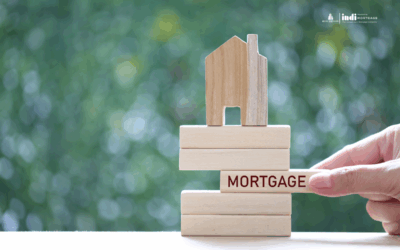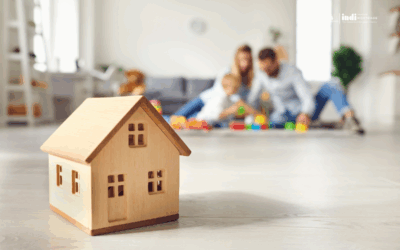Welcome To Our Mortgage Educational Blog About:
Should I Invest in a Second Home?
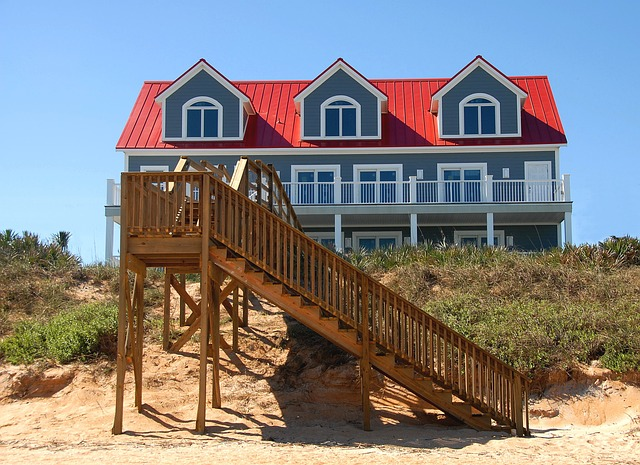
Investing in a second home can be a great decision if you want to diversify your investments and have a steady income stream. It is a great way to diversify your portfolio, generate long-term income, and enjoy a vacation destination.
When you purchase a second home in Canada, you’ll have access to all the advantages of living in one of the most beautiful countries in the world. Canada is a great country to invest in due to its friendly and stable economy and a wide variety of housing options. From breathtaking landscapes to bustling cities, there is something for everyone in Canada.
But it’s important to do your research and understand the financial and emotional implications before making a decision. Finally, you should seek the advice of a financial expert to help you make an informed decision.
They can help you understand the financial implications of investing in a second home, analyze the potential return on your investment and make sure you are making the right decision for your individual circumstances.
Ultimately, deciding to invest in a vacation home should depend on your financial situation, goals, and risk tolerance.
In this blog, we will explore some of the advantages of investing in a vacation home in Canada, as well as some potential downsides you should consider before making your decision. With this information, you’ll be able to make an informed decision about whether or not investing in a second home is the right move for you.
So, let’s dive in and examine whether investing in a second home is the right move for you.
What Does Second Home Mean?
Second homes are different from primary residences. According to the Canada Revenue Agency (CRA), a second home is one you own but don’t reside in it permanently. This type of property may include cottages, vacation homes, rental properties, and more. Second homes are especially popular in Canada, given its vast and diverse landscape.
Second homes can be used for many reasons, such as private vacations, rent on a short or long-term basis, or even to invest in property and generate income. The decision to invest in a second home should be made with careful consideration and research.
You must take into account the costs associated with home ownership, the current market conditions, and legal and tax obligations. Additionally, it would help if you determined your purpose in buying the home and your risk tolerance when it comes to investing in additional properties.
Ultimately, this is a completely personal decision and should be made based on individual preferences and needs. However, it’s important to do your research and build a plan that best suits your goals.
What are the Potential Benefits of Investing in a Second Home?
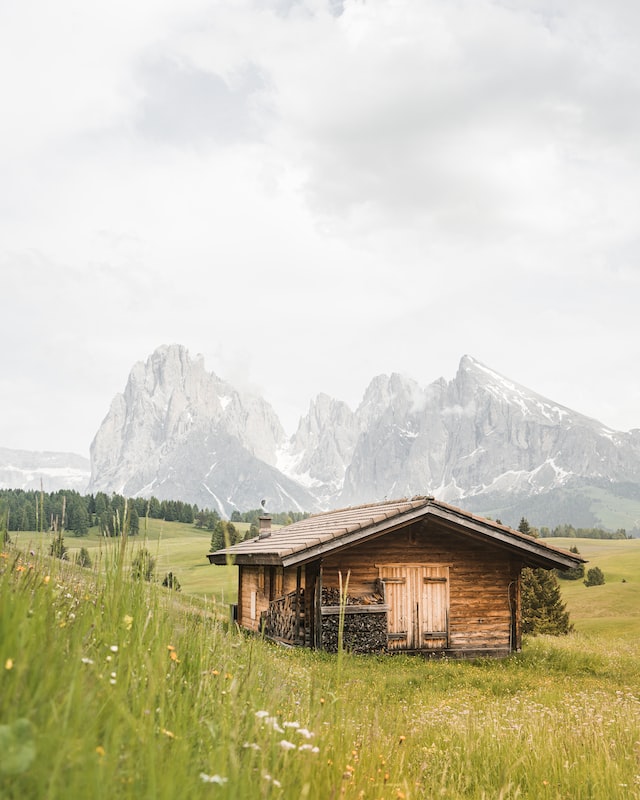
There are a number of advantages to buying a second home in Canada. Many investors consider owning a vacation home a wise investment, as it can provide financial security in the long term by providing a source of income when the property is rented out. It also provides an opportunity to diversify your portfolio, which can be particularly beneficial in times of economic uncertainty.
Furthermore, if you buy a second home specifically for vacation reasons, you could enjoy tax benefits for the interest payments and other costs associated with the purchase.
One of the major benefits of buying a vacation home is that it can offer you a number of potential tax advantages. As a Canadian citizen, you’ll generally be eligible for tax deductions on any interest amount you spend towards a mortgage if your vacation home is used for business, property taxes in some cases, and repairs.
Additionally, if you rent out your vacation home you can claim expenses such as:
-
cleaning
-
advertising
-
property management fees
-
depreciation
-
agent fees and commisions
Plus, Canada has a number of appealing cities with strong property markets. Toronto, Vancouver, and Montreal have all seen significant growth in average home prices in recent years, making them attractive options for investors looking to make a long-term commitment.
Plus, Canada has a number of appealing cities with strong property markets. A handful of major cities in Canada have seen significant growth in average home prices in recent years, making them attractive options for investors looking to make a long-term commitment.
What are the Risks of Investing in a Vacation Home?
Although it may seem like a lucrative idea to invest in a second home it’s important to consider the risks involved. Investing in a vacation home can be a riskier proposition than investing in your primary residence.
One of the biggest risks is that of an economic downturn from something like Covid-19, which can significantly devalue the property and make it difficult to sell.
It is important to carefully research the local market to ensure that the home will appreciate in value over time, as real estate markets can be unpredictable. Additionally, the costs of maintaining an investment property, such as repairs and vacancy costs, can impact the bottom line.
In addition, landlords may also face legal issues if their renters do not abide by the terms of their agreement. As such, it is important to ensure that all legal documents are in order prior to renting out the property.
Finally, there are also legal and administrative obligations associated with owning a second home in Canada.
What Things to Consider before Investing in a second property in Canada?
When deciding whether to invest in a second property in Canada, it is important to consider the many different factors involved. From the type of property you will choose to the location, lifestyle considerations, and economic factors, you’ll need to be prepared to do extensive research before taking the plunge.
Before you make any investment decisions, it’s important to understand the regulations and laws that govern the Canadian real estate market. For example, foreign buyers are subject to certain restrictions when it comes to purchasing property in Canada. As a result, foreign buyers should understand how these restrictions might affect their ability to buy a second home.
In addition, it’s important to have a complete understanding of the local real estate market and the typical process of purchasing property in Canada. This involves researching local real estate trends, comparing mortgage rates, and going through a necessary step-by-step approach to ensure that your purchase fits within your financial goals and budget.
Here are the key points to consider when deciding if investing in a second home is right for you.
1. Location
When deciding if a second home in Canada is a good investment, your location can make or break your decision. Consider the cultural, economic, and lifestyle benefits of a particular area. Research the local real estate market and rental opportunities. Look into the average home price and investment potential for local neighborhoods. Talk to local experts about current trends, such as potential changes to property values or development plans.
As a bonus, Canada is full of beautiful lakes and bodies of water! If you’re looking for a Vacation Property, consider purchasing a property that’s close to the water. This way, you can enjoy swimming, sunbathing, and swimming without having to travel too far from your property.
2. Finances
For any real estate investment, it is important to have the financial security to make the purchase. When investing in a second home, factor in the down payment, monthly mortgage payments, realtors’ fees, operating expenses, and other associated costs.
Depending on your financial situation, the lender may offer many mortgage plans and home equity products. However, it’s important to be aware that lenders typically require a higher down payment on a vacation home than on a primary residence.
Talk to a mortgage specialist to learn more and determine if investing in a second home is right for you.
3. Taxes and Regulations
Another important factor to consider when investing in a second home in Canada is taxation. Federal and provincial taxes apply. Look at the various rules and regulations for your specific province in regard to investment properties and rental earnings.
The Canadian government offers a variety of tax benefits for investments in real estate property. Homeowners may be eligible for capital gains exemptions and deductions on mortgage interest, property taxes, and other expenses.
If the property is intended as a long-term rental, you’ll be able to deduct certain expenses, such as interest paid on loan, as well as maintenance, repairs, and other costs. Additionally, you may be eligible for certain tax credits or incentives.
The most common and beneficial tax break for second homeowners is the ability to claim the mortgage interest fees as a tax deduction if the property is used for business. Interests paid on a mortgage can only be deducted if the mortgage is paid on a property that is used for business.
Additionally, in some cases, the rental income from a vacation home can be used to offset the costs associated with owning a second home.
4. Consider Your Existing Portfolio
Once you’ve done your research, it’s important to think about your existing portfolio of investments. Investing in a second home could give you more passive income than other investments in the long run, but you should also remember that it’s also a long-term investment. Consider how the addition of a second home to your current portfolio would help you meet your financial goals.
If done strategically, investing in a second home can be a great decision. So don’t rush into making an investment; carefully consider all the factors and make an informed decision.
Research the options carefully and make use of the many helpful resources available. With the right real estate investment, you could be well on your way to securing your financial future.
5. Flipping Properties
For those who don’t wish to hold onto their second home for the long term, there is the option of ‘flipping’ properties. Property flippers purchase rundown homes, renovate them, then quickly sell them for a profit.
Although there is a potential for a large financial return, it is important to be aware of the risks associated with flipping houses, as it can be a risky venture.
Overall, when considering whether to invest in a second home in Canada, there are a number of points to consider. Each individual situation is different, and it ultimately boils down to weighing up the pros and cons of such a financial commitment.
Consider Environment and Lifestyle
When it comes to investing in a second home, location and lifestyle should be top of mind. Before you dive in and purchase a property, consider whether the area offers what you’re looking for in terms of activities and amenities.
If you’re looking for a family vacation home, you’ll want to ensure the home is located near attractions the whole family can enjoy. If you’re looking for a place to retire, you’ll want a location that offers peace and quiet and possibly a property with acreage.
On top of location, you’ll want to consider the lifestyle you’ll lead at your vacation home. If you plan to only use the home a few weeks out of the year and rent it out the rest of the time, you’ll be able to take advantage of tax deductions and rental income.
However, if you plan to use the home for extended periods of time, you’ll want to think about the cost and practicality of maintaining both of your homes from a distance.
Determine Your Investment Approach
When it comes to investing in a second home, there are many different strategies you can take. If you’re looking for a long-term investment you can use for retirement, a traditional approach, such as purchasing a single-family home, might be the best option.
If you’re looking for a short-term investment and want to use the home as a rental property, you might want to consider investing in a condo or townhome, as they typically require less upkeep than single-family homes.
No matter what approach you decide on, it’s important to do your homework and understand the local market and rental trends before making a purchase. Research the home’s value, calculate the rental returns and look into the tax implications.
This way, you’ll be better prepared to make an informed decision and maximize the return on your second home investment.
Return on Investment
When determining whether to invest in a second home, one should weigh up the potential return on investment (ROI). This requires analyzing the current market trends and evaluating potential rental income. If the ROI is favorable, it may be a wise idea to invest in a second home.
Otherwise, the investment may turn out to be a financial disaster. Furthermore, considering the long-term is important. Sometimes, this can be a better way to earn than a savings account or a stock market. Home prices tend to appreciate in the long run, making them a solid long-term investment.
How Much Do Second Homes Really Cost?
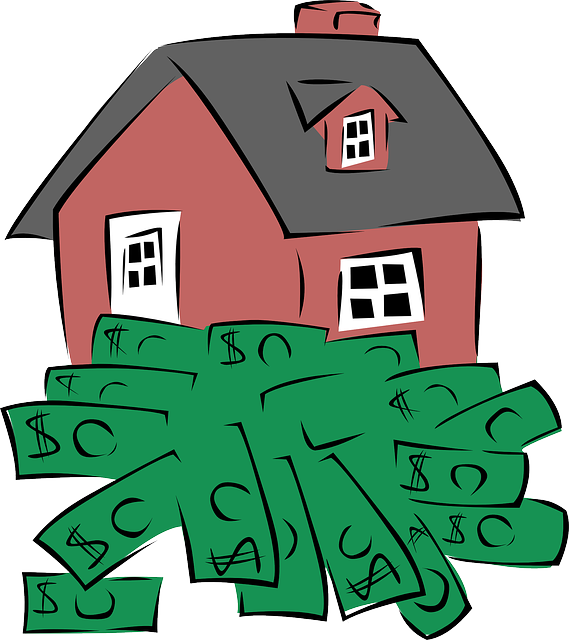
If you’re thinking about investing in a second home in Canada, the first thing you need to consider is the cost. Second homes are significantly more expensive than regular homes, and investing in one may not be the most feasible option if you’re already investing in your primary residence.
Generally, vacation homes in desirable areas will cost significantly more than more affordable properties near, but not in a popular vacation destinations. Additionally, second homes come with additional costs like property taxes, home insurance, utilities, real estate appreciation, and more. Depending on the area and your circumstances, investing in a vacation home can range from being moderately expensive to outlandishly expensive.
The cost of a second home will vary based on a number of factors, including location, size, condition, type of home, and amenities. Generally speaking, second homes typically cost more than a similar property in the same area. This is due to the additional costs associated with a second home.
To get a rough idea of what you might expect to pay, consider the following average price range for second homes in Canada:
-
Small cottage or condo: $150,000 – $300,000
-
Mid-sized property: $300,000 – $500,000
-
Large single-family home: $500,000 – $1,000,000+
In addition to the price of the home itself, you’ll also need to factor in any additional costs associated with the purchase, such as closing costs, property taxes, property management, and maintenance expenses.
What are the Rules for Buying a Second Home?
In Canada, rules and regulations for buying a second home depend on your province or territory. Many provinces require buyers to pay an up-front, non-refundable deposit when they purchase a vacation home. Additionally, buyers may be asked to meet additional qualifications or criteria depending on where they want to buy.
Additionally, all buyers should understand the tax implications and other costs associated with buying a second home. Once all of the taxes, closing costs, registration fees, and lawyer’s and realtor’s fees are added up, buyers should be sure to factor these costs and taxes into their budget.
Generally, a buyer must have sufficient funds to afford a second mortgage, or have equity built in their primary residence. As long as the property is intended for family occupancy at one point during the year, a down payment of at least 5% is required on the first $500,000 of the purchase price.
Conclusion
When it comes to moving and investing in a second home, Canada is a popular choice. It offers great amenities, a stable economy, and year-round outdoor activities, whether it’s for a family vacation spot, retirement, or investment purposes.
But before you think about investing in a vacation home, there are a few important considerations you’ll want to make to ensure it’s the right decision.
In conclusion, investing in a second home in Canada can be a great opportunity to diversify your investments, gain financial independence and make lasting memories for your family. However, it’s important to carefully consider all factors before you make a move to purchasing a second home.
Are you looking for a diligent, thorough, transparent partner to walk the house-buying journey with you? Do you have any additional questions? If so, call me to book your free consultation, 780-905-6359. Alternativley, you can email me by clicking right here! Metro Mortgage Group is here to help!
Are you ready to purchase your first home? Reach out to me directly or start your application here: www.sandraforscutt.ca/mortgage-application/
Don’t hesitate to contact us with any questions you may have.
Recent Educational Blogs
Preparing for Renewal Season
Oct 2025 | Preparing for Renewal Season: What 2026 Borrowers Should Do NowWith nearly 60% of Canadian homeowners set to renew their mortgages by the end of 2026, preparation has never been more important. After years of ultra-low rates during the pandemic, many...
Navigating Mortgage Renewals
Sept 2025 | Navigating Mortgage RenewalsFrom Rock-Bottom Rates to Today’s RealityIf you were lucky enough to secure a mortgage in the early days of 2020, chances are your rate was impressively low, often near 1% to 2%. At the time, the Bank of Canada’s overnight rate...
How Your Credit Score Impacts Mortgage Approval
Aug 2025 | How Your Credit Score Impacts Mortgage Approval If you’re thinking about buying a home, you might be wondering how your credit score influences the process. The short answer: your credit score is one of the most important factors lenders consider when...

